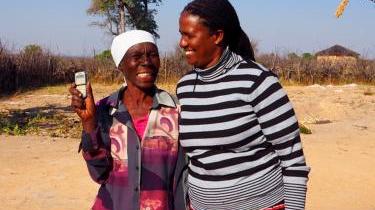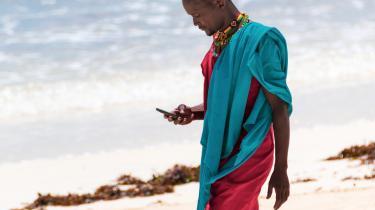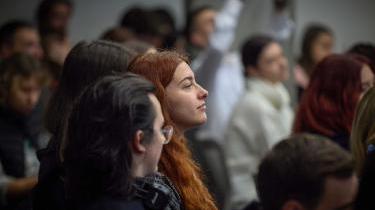As of 2018, there were more than five billion mobile subscribers worldwide, and more than two thirds of those were active mobile internet users. Growth in mobile usage has brought rapid social change, transforming the way people communicate and access information. Mobile technology has huge, growing potential to tackle important development challenges, providing a cost-effective, large-scale channel for driving social and economic development and potentially providing a route out of poverty. It connects people, businesses and governments, and enables the free flow of information and access to knowledge and services including education, health and energy. Mobile money is a powerful tool for financial inclusion; and mobile technology has particular potential to reduce some of the barriers which women and those with disabilities face in participating in economic activity.
However, the growth of mobile technology can bypass underserved groups, including women, disabled people, refugees and displaced people, and those living in fragile and conflict-affected contexts. This exacerbates inequalities and marginalisation by freezing people out of the benefits of mobile technologies, so that many opportunities for digital solutions to tackle development challenges remain unrealised. The GSMA works on several fronts to address these challenges.
GSMA’s partnership with Sida aims to promote the use of mobile technology to achieve sustainable development
The GSMA is the mobile industry’s trade body and represents the interests of many companies in the sector from across the globe, including mobile network operators. In 2008 the GSMA founded the Mobile for Development (M4D) Foundation which works with mobile network operators, governments, donors and civil society to promote the role of mobile technology to drive innovation in digital technology with the aim of reducing inequalities and delivering large-scale socio-economic impact for the underserved. Since 2017, GSMA’s partnership with the Swedish International Development Cooperation Agency (Sida) has funded three workstreams: Connected Women, working on women’s digital inclusion; National Dialogues, which brings government and mobile network operators together to work for sustainable development; and Sustainability, which aims to influence and support mobile network operators to integrate the Sustainable Development Goals (SDGs) and sustainability into their core business. To support this work, GSMA sought a monitoring and evaluation partner to strengthen progress and results measurement and evaluate effectiveness .
Our team has worked closely with GSMA teams to help them to articulate how the workstreams hope to achieve their goals, to assess the extent to which change is happening, and to understand how and why change occurs
Triple Line and our partner Every1Mobile have been working alongside GSMA to develop a framework for monitoring and evaluating the work funded by Sida and provide guidance to GSMA teams for its implementation, so that they can account for funding and strengthen the programme. Our team of monitoring, evaluation and learning (MEL), technology, digital and inclusion experts brought their experience of similar programmatic evaluations, to develop a practical, comprehensive results framework across the portfolio, and a meta-analysis to address key learning questions at multiple levels.
Our team worked closely with the GSMA workstreams to develop a model for what they were wanting to achieve through the Sida funding, and how (the theory of change). We used this to design a results framework with indicators across the three workstreams against which to measure progress at output, outcome and impact level, and provided guidance on how to implement this through collection and analysis of good quality data. As the grant approached its close, we evaluated the work funded by Sida and, as part of this, undertook case studies to look in depth at certain aspects of the programme and provide additional insights and understanding. An early case study of National Dialogues in Uganda, which fed into the final evaluation, tested the case study approach and provided lessons and pointers for future National Dialogues work in Uganda and in other countries.
Building a strong partnership with GSMA has laid the foundation for the development of a practical and useful results framework which the GSMA has been using to track progress and report to Sida. The final evaluation has gathered evidence to assess the relevance of the interventions, what has been achieved and how, and with what likelihood of sustainability and impact.




